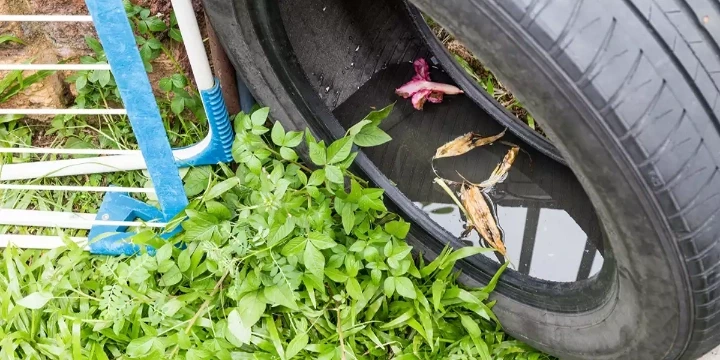For your Home
Login or register for the customer portal
With spring-like temperatures moving in, many of us are shaking off our winter thaw and putting together spring cleaning checklists. Spring is a great time to conduct an inspection of your home with an eye towards potential pest problems.
Here are six spring cleaning tips from our experts.

All of the stuff we store in our homes provides lots of places for rodents and other pests to hide out. Basements, attics, and garages that often go undisturbed for long periods of time are some of their favorite spots. Keep your home free of clutter by getting rid of any items you no longer need. Store all of your belongings in plastic air-tight containers to keep pests out and your belongings protected.
Clutter gives pests places to hide and makes them difficult to detect. Having a lot of stuff can also make it harder to clean under and behind things - places pests love to hide and build nests. This could also make pests difficult to control, even for the professionals. Eliminating clutter can help eliminate pests in your home.

Electrical boxes and wiring are a favorite of pests looking for a warm place to live in colder weather. Open electrical boxes and look for living or dead insects. Check for damage before you touch any wire, even if you don’t think it has a charge running through it. Damaged wires might also overload and short out or even damage attached appliances. Worst of all, exposed wires can overheat and spark, which could lead to dangerous electrical fires.
Rodents love to sharpen their teeth on electrical cords. They frequently chew plastic—especially the soft plastic cover over cords—and expose the wiring within. Sometimes, they’ll even damage the wire itself, releasing the electrical current. Rodent-related electrical damage is especially dangerous because it often goes unnoticed. If you notice anything suspicious, alert your Western Exterminator pest specialist.

While we do recommend that you feed your pets, make sure they're not leaving a mess behind. Pet food, birdseed and dry food items are tempting snacks for hungry pests. In your pantry, keep dried foods and grains in sealed, pest-proof containers. The same holds true for pet foods. Keep areas where animals eat swept, and empty bowls after your furry friends have eaten. Hose down outside spaces after barbecues. Finally, if your kids snack in rooms other than the kitchen, make sure they clean up after themselves!

Pests of all kinds can make their way into your home through the smallest gaps and cracks – particularly near windows, doors, and roof lines or around electrical wiring and vents. These should be sealed to prevent pests from getting in. Eliminating potential pest entry points into your home is the best defense you can take to prevent an indoor infestation. Plus, sealing your home can have other benefits like reducing energy costs, preventing water damage, and making your home more secure. Check out our article on pest-proofing your home for more tips.

Moisture of any kind is a huge attractant for pests, including termites, mosquitoes, and rodents. Remove items that may collect water – toys, plant pots, non-functioning birdbaths, etc. Make sure subareas are dry, and that gutters are cleaned. Any leaking faucet or plumbing, both inside and out, should be repaired.
Inside your home, wipe down kitchen countertops and bathroom sinks. Some insects like spiders, silverfish, and ants may enter your home through your pipes. If parts of your home are humid or damp in warmer months, a dehumidifier can help control excess moisture.

Leaves, tree stumps, and other plant waste offer hiding places and safe harbors for pests. Trees hanging over roofs can also give pests access to your home. To prevent pests from invading your home this spring, rake and clean up plant debris, especially under porches and decks. Keep trees trimmed, leaving at least a three-foot clearance between the tree and any structure. Remove dead branches and brush, and store firewood at least 25 feet away from your home.
Contact us today to make pest control a part of your spring cleaning routine.